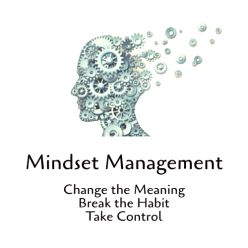The Power of a Growth Mindset
THE most powerful force at play is your mindset. The way we think about ourselves, our abilities, and the challenges we face determines how far we go. Two types of mindsets often shape this path—the growth mindset and the fixed mindset. Understanding the difference between these mindsets and choosing to adopt a growth mindset can be the key to unlocking your potential and achieving both personal and professional growth.
What is a Growth Mindset?
A growth mindset is when you believe that your abilities and intelligence can be developed with effort, practice, and perseverance. This is in contrast to a fixed mindset, where you believe that your abilities are static and unchangeable. Those with a fixed mindset may avoid challenges, give up easily, or see effort as pointless because they believe that talent alone determines success.
When we adopt a growth mindset, we start to approach situations with curiosity, perseverance, and the belief that we can improve. We bounce back from setbacks more quickly, knowing that failure isn’t the end, but rather a learning experience. We say things like ‘ there is no such thing as failure, only feedback’
We become more willing to try new things, take risks, and explore different approaches. A growth mindset motivates us to keep learning and growing, which leads to long-term success.
Can you Shift from a Fixed Mindset to a Growth Mindset
Yes you bet you can, it takes Awareness and Practice but you too can create a Growth Mindset.
When facing a challenge, instead of thinking, “This is too hard, I can’t do it,” reframe your thinking to “This is an opportunity to learn.”
Example:
If you’re working on a difficult project at work, instead of saying, “I’m just not good at this,” say, “This is a chance to stretch my abilities and learn something new.” Each challenge becomes an opportunity for improvement, rather than a sign of weakness.
A growth mindset views failure as part of the learning process. Failure is not the end—it’s feedback. With a growth mindset, you learn to reflect on what went wrong, adjust your approach, and try again with new insight.
Example:
Imagine you failed to land a job you applied for. Instead of feeling defeated and thinking, “I’m just not cut out for this,” shift your thinking to, “What can I learn from this experience?” Maybe you can improve your resume, work on your interview skills, or seek feedback from the employer. Every failure is a stepping stone toward success.
The concept of “yet” is a powerful tool in fostering a growth mindset. When we tell ourselves, “I can’t do this,” we’re labelling ourselves as incapable. But when we add “yet” to the end of that sentence, we create room for possibility and growth: “I can’t do this yet.” This simple word shifts your thinking from a state of limitation to one of potential.
Example:
Instead of saying, “I’m not good at math,” try saying, “I’m not good at math yet.” By using “yet,” you allow yourself the space to grow and acknowledge that with time and effort, improvement is possible.
A growth mindset values the effort you put into something, not just the outcome. While it’s great to celebrate successes, it’s just as important to appreciate the effort and perseverance it took to get there. This helps you develop a healthy relationship with the process of growth, rather than just focusing on end results.
Example:
If you’re learning a new skill, like coding or public speaking, don’t just celebrate your first successful project or presentation. Acknowledge the effort you put into each practice session, even when things didn’t go perfectly. Recognizing the hard work is just as important as celebrating the wins.
Instead of feeling threatened by the success of others, use their achievements as inspiration. A growth mindset allows you to appreciate the journey others are on and learn from their experiences. Seeing someone else’s success can motivate you to push forward and believe that you can achieve similar success through effort and persistence.
Example:
If a colleague gets promoted and you’re feeling envious or discouraged, remind yourself, “Their success is proof that growth and advancement are possible. What can I learn from their path to success?” This mindset shift helps you stay motivated and fosters collaboration rather than competition.
The great news is that anyone can develop a growth mindset. It’s not about natural talent, but about believing in the power of learning and persistence.
Here’s your task: Start today. Take on a challenge, learn from the experience, and watch yourself grow. What’s one thing you can do today to step outside your comfort zone?
Send me your comments—I’d love to hear how you’re pushing yourself!
www.mindsetmanagement.co.uk
